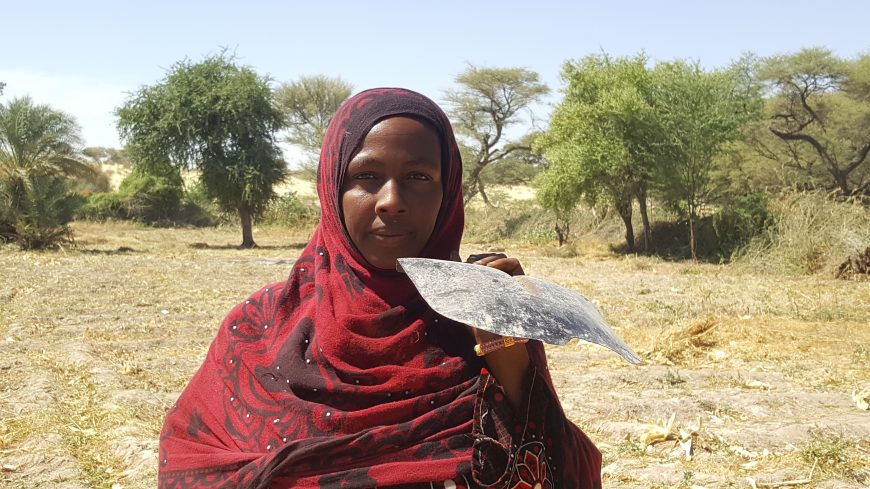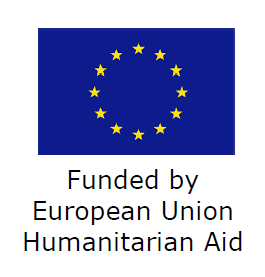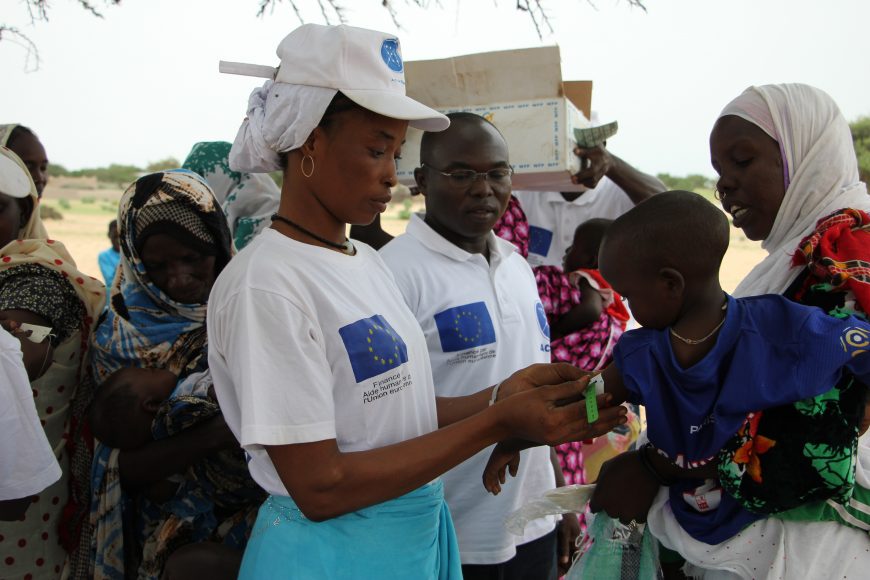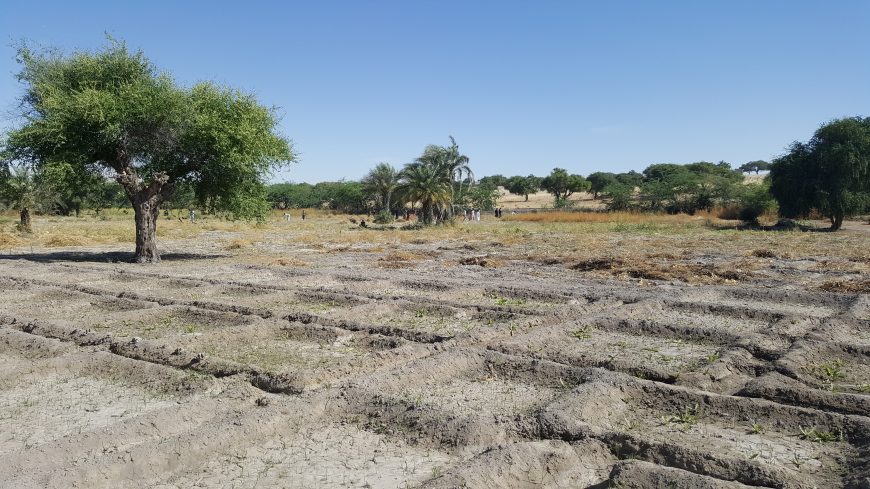In 2018, the populations of the Lake Chad and Batha regions were affected by a severe food crisis. During the agricultural lean season, ACTED supported the most vulnerable with cash distributions and nutritional supplements, and set up group market gardening activities to strengthen the resilience of the affected populations.
Mariam’s family was directly affected by the Lake Chad crisis. Until recently, her husband worked as a fisherman on Lake Chad. His income enabled to support the family. The insecurity situation has forced him to stop working and go back to the village of Bari Dina. He has difficulty finding work, and the couple struggles to feed their seven children.
The family received ACTED’s cash support to survive the hunger gap – 27,000 FCFA (about 40€) – as well as nutritional supplements on a monthly basis, between June and September 2018, reaching 5,900 people thanks to the support of the European Commission’s Directorate General for Civil Protection and European Humanitarian Aid Operations (ECHO) and the World Food Programme (WFP).
Mariam used the money she received to buy corn.
Tackling malnutrition
In Didjamba village, ACTED teams met Sadia, mother of a malnourished 10-month-old girl. Health centres are far away from her village, and don’t always have the medicine necessary to treat malnourished children. Sadia is unable to bring her there, all the more that she can’t know if her daughter can be treated. Thanks to ACTED’s support, Sadia received nutritional inputs for her daughter. She also attended information sessions on best food and hygiene practices to help her daughter recover. Today, the little girl is healthy, but that is not enough to appease Sadia: despite all her efforts to cultivate her piece of land, she expects poor harvest. As for her husband, he may have to leave Didjamba to find a job in the city.
Market gardening groups reinforce families' resilience
One can still see some crop remants since the last corn harvest. In Bari Dina village, where Mariam lives, ACTED has created a market gardening group of 25 people with support of the French Embassy in Chad. Members of the group have participated in training and have been provided with the equipment and inputs needed to launch agricultural activities.
Access to water is very limited in the region. While they don’t have a well to irrigate their rely on support from village residents, thanks to whom they planted their first seeds donated by ACTED. In Bari Dina village, agriculture has always been the main activity, but residents were not used to working in groups. The men worked mainly as day labourers on the plots of other owners.
Working alone doens't bring anything, but working within a group can bring a lot
Awa's story
Awa is a member of the market gardening group of Dibintchi village. Awa and her husband have often worked in the fields as day labourers. She learnt a lot through these exeperiences, including market gardening techniques, seeds, irrigation methods, nursery planting… She could manage on her own, but she can’t afford it. When ACTED teams came to Dibintchi to propose the creation of market gardening groups, Awa decided to volunteer.

Une mère agricultrice
When Awa works in the field, her eldest 12-year-old daughter takes care of her six brothers and sisters, including the youngest, who is 7-months old. A few months earlier, ACTED had visited the family as part of malnutrition screening activities – one of Awa’s sons, aged two, was suffering from malnutrition.
Awa participated in ACTED’s information sessions and cooking demonstrations, where she learned how to prepare porridge with enriched flour.
I followed all the recommendations. Now my son is better
Thanks to the group gardening activity, Awa hopes to be able to support her family.
The women members of the group now want to go a step forward by buying a mill for flour production.


